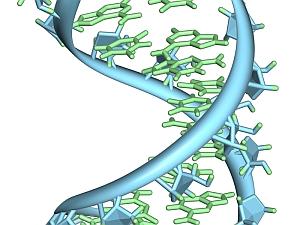RXi Pharmaceuticals, a biotechnology company in Westborough, Massacusetts reports an early-stage clinical trial of its treatment for skin scarring shows the therapy is safe and generates the desired chemical response in the body. The trial is testing RXI-109, the company’s therapy based on RNA to treat hypertrophic scarring and keloids associated with skin trauma.
RXi’s technology harnesses ribonucleic acid or RNA, that transmits genetic information from DNA to proteins produced by cells in the body. One type of RNA interferes with a gene’s expression and thus reduces the impact of the gene, which in a therapeutic can help counteract an overexpressing gene’s disease-causing effects. The company’s technology platform uses this capability in a mechanism that self-delivers interfering RNA to the affected cells, encourages the cells to take up the RNA, reduce obstacles from immune responses, and provide long-lasting cellular activity.
Hypertrophic scarring and keloids are abnormal tissue growths beyond the original skin injury, characterized by unorganized collagen fibers in a matrix of dense connective tissue. The growths are often raised, visible, and associated with itching or pain.
RXI-109 is an RNA-interfering agent that targets connective tissue growth factor, a protein involved in fibrous human tissue that promotes the proliferation, migration, and adhesion of associated cells and its overproduction can lead to scarring. The agent is designed to reduce the expression of connective tissue growth factor.
The new trial reported by RXi is the second in a series of clinical studies to test the safety of RXI-109. In the study, 9 healthy volunteers received two sets of small skin incisions in the abdomen. The incisions were treated with three escalating injected doses of RXI-109 on one set of incisions, and a placebo on the other set.
The volunteers were monitored for safety and side effects for 12 weeks. The company reports the multiple injected doses of RXI-109 were well-tolerated by the trial subjects. The treatments also, says the company, resulted in silencing the messenger RNA from connective tissue growth factor in the treated areas. The first safety trial, conducted last year with 15 healthy volunteers, showed a single dose of RXI-109 lowered the protein content for connective tissue growth factor.
RXi Therapeutics was spun-off last year from Galena Biopharma in Portland, Oregon. The company’s technology is based on the research conducted by scientific founder Craig Mello, a professor at the University of Massachusetts Medical School and winner of the 2006 Nobel Prize in medicine (shared with Andrew Fire) for his work on interfering RNA. Mello chairs the company’s scientific advisory board.
Read more:
- Clinical Trial Underway to Test MicroRNA Cancer Therapy
- AstraZeneca Licenses Messenger RNA Therapy Technology
- Genomics Biotech Raises $40 Million in Venture Funds
- Patent Awarded for RNA Process of Inhibiting Gene Expression
- RNA Nanoparticles Advanced for Cancer Drug Delivery
* * *


 RSS - Posts
RSS - Posts
You must be logged in to post a comment.